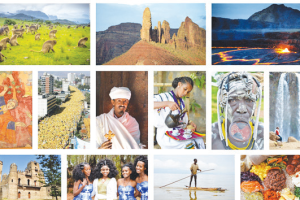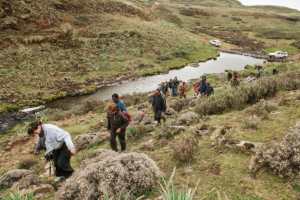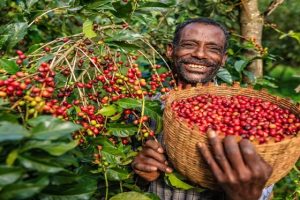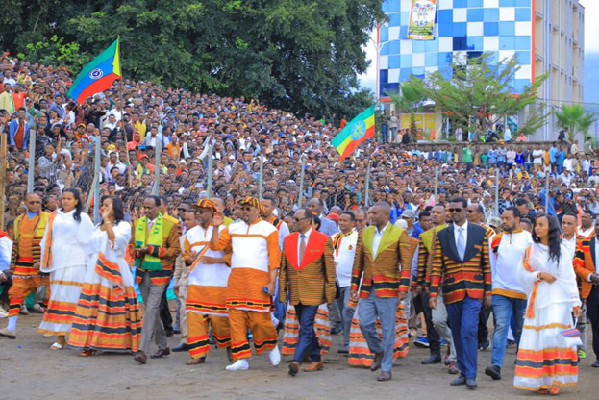
When it is said that Ethiopia is a unique country, it is not just to say it; but with reason. Leave alone its magnificent natural endowments, but the varied breathtaking social, religious and cultural festivals that are cherished by its diverse people speak for their own selves and have a lot to offer to visitors.
The festivals that are celebrated when the rainy season nearing to leave its place to the sunny season, Ethiopia’s nations, nationalities and peoples celebrate a number of festivals. Just to mention, Enqutatsh, the first day of Ethiopian New Year, Demera and Meskel the Finding of the True Cross, Irrecha- Oromo people Thanksgiving day- Yahode and Giffaata – New Year festivals of Hadia and Wolaita peoples- are some.
The most inspiring thing about all the festivals is that though the ceremonies are celebrated by different ethnic groups in different areas and times, the core ideas of all the festivals are peace, unity, solidarity, togetherness, forgiveness, and considerateness. All the festivals abhor conflicts, hatred, and theft. Elders preach about peace, solidarity and unity, give their blessings the new year to be a year of happiness, love, peace prosperity.
Recently both Yahode and Giffaata, New Year celebration of Hadia and Giffaata people were celebrated colorfully on September respectively.
Giffaata, which is one of the cultural values of Ethiopians in general and to that of Wolaita people in particular was marked colorfully last Sunday, September 24 warmly and colorfully.
The Giffaata New Year festival marks the end of the rainy season and the beginning of the harvest season. It is a time when people express their gratitude for the bountiful harvest and pray for continued abundance in the coming year. The festival serves as a celebration of agricultural prosperity and a way to honor the land and its fertility.
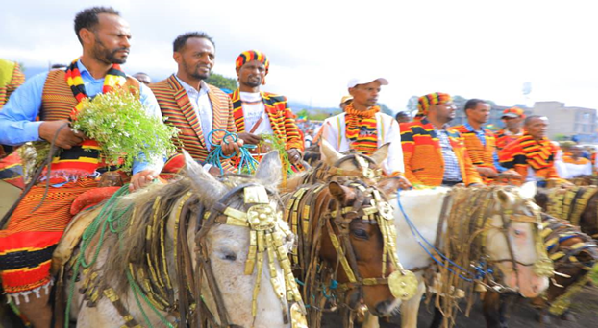
Giffaata festival is marked with various traditional rituals and ceremonies. These include getting together, praying for blessings and prosperity, as well as traditional dances, music, and cultural performances. These rituals are deeply meaningful to the Wolaita people and are an integral part of their identity.
According to Wolyita Zone Tourism Bureau Head, Teshome Habte, Giffaata is a special day marked not only in Wolayta Zone but also in other parts of the country. To make this year`s Giffaata more colorful all preparation were made and several platforms were arranged.
“Giffaata is a special event for the people of Wolaita . It is a new year festival and an event that the cultural values and the identity of Wolaita people are demonstrated. It is a festival that has been passed from generation to generation.”
On his part, Wolaita Zone, Chief Government Officer Asaminew Ayeza said that Giffaata is one of the intangible heritages of Wolaita people. Giffaata literally means great or first; it also means a channel. In other words, Giffaata is the first month of the year and transitional season for the people of Wolaita . It is a special day where every person experience transition from old to new season; from darkness to light. For this reason, Wolaita people prepare themselves to Giffaata with several traditional and cultural practices.
As he explained it in detail to EPA, Culture, History and Heritage Researcher Adane Ayz, Wolaita is a region with its own unique calendar; and Giffaata is the first month of the year.
Adane said that whenever the issue of New Year is raised among the people of Wolaita , their unique calendar is always there. This is because every New Year is the result the calendar system that particular society follows. In one way or another, every society in the whole world follow either a lunar, solar or lunisolar calendar. In this regard, as confirmed by studies conducted in this particular area, the Wolaita people follow Lunisolar calendar, which is the combination of both lunar and solar calendar.
Wolaita people call the day time Gallassa and he night time Qammaa; day and night times (24 hours) together are called Issi wontta.
According to Adane, Wolaita people have also a unique way of calculating the week days. Based on this system grand market day is the first day of the week. The day in which the moon first appeared is considered as a week one and is called Aginiyaa xeeraasu. All the consecutive days, starting from the first grand market day to the coming market day are calculated as one week or locally called Naa”u Giyaa). Accordingly, five market days (Ichchashu Giyaa) including the first grand market day, are calculated one full moon cycle and represent one month (Issi Aginaa).
According to Adane, the two days that come before the moon appeared are also special to the people of Wolaita , for it is on these days (Xeero Cheggena) they work while waiting the moon to rise.
On Giffaata day, the father followed by his son will go to neighboring site where villagers fattened an ox that is going to be slaughtered and divided equally among the community for that particular day. As they get together at the house, where the ox was fattened and slaughtered, the community will share a meal (raw meat) together. This is part of the cultural tradition of the Wolaitya people and a sign of their love, solidarity and togetherness.
According to Adane, an ox which is fattened for Giffaata day has special value among the society. For that reason, a separate stall will be prepared so that no one will see it except the one who feed and take care of it. It is within this stall the ox will be feed and fattened by those groups of individuals who have share on the on. Cleaning the environment, the house, restoration and renovation activities that are accomplished by fathers and sons are part of Giffaata festival. Cleaning houses or restoration of houses are signs of the arrival of new season.
The Giffaata New Year festival holds immense cultural, social, and spiritual significance for the Wolaita people. It serves as a dynamic expression of their identity, a celebration of their agricultural traditions, and a time for communal unity and joy. Above all, it is also a living witness that Ethiopia is a mosaic of various fascinating and unique culturess.
BY LEULSEGED WORKU
THE ETHIOPIAN HERALD FRIDAY 29 SEPTEMBER 2023


